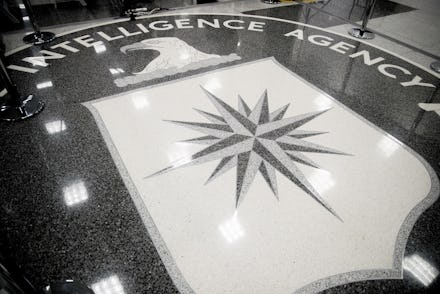What is the "deep state" — and is it out to destroy Trump?

As President Donald Trump veers further and further away from what might be considered traditional presidential behavior, observers and critics have begun to wonder what, if anything, can rein him in.
This worry isn't a new one. Back when Trump was the Republican nominee, onlookers thought congressional Republicans would check his greatest excesses. When that didn't happen, they turned to U.S. institutions. When the institutions largely fell in line behind him, they wondered if Mike Pence would speak up.
The latest focus for Trump critics is the “deep state.” It’s hard to identify precisely who coined the phrase, but it’s most often used in reference to Turkey. In a 2012 story in the New Yorker, Dexter Filkins describes the deep state — “derin devlet” in Turkish — like this:
The deep state is a presumed clandestine network of military officers and their civilian allies who, for decades, suppressed and sometimes murdered dissidents, Communists, reporters, Islamists, Christian missionaries and members of minority groups — anyone thought to pose a threat to the secular order, established in 1923 by Mustafa Kemal, or Atatürk. The deep state, historians say, has functioned as a kind of shadow government, disseminating propaganda to whip up public fear or destabilizing civilian governments not to its liking.
What do observers mean by "deep state" today?
The term has come to describe any group of administrators, bureaucrats, intelligence officers and other unelected officials who conduct the day-to-day business of running a country and who, by the very nature of their jobs, have access to information which, if it became public knowledge, could undermine the administration’s ability to get things done.
It’s in this sense that Trump's opponents and his supporters both use the phrase. While he didn’t use the words “deep state,” Trump recently accused the U.S. intelligence community of leaking information to the press in order to undermine his ability to govern — an accusation not without merit.
Trump's campaign, his transition team and his White House have all been bedeviled by leaks. Scarcely a day goes by that some humiliating tidbit emerges about Trump or one of his allies. The preening need to prove his inauguration crowd was bigger than Obama's; the berating phone calls with allies; the fact that nobody in the White House knows where the light switches are.
And then there's the Flynn situation. Last week, former General Mike Flynn, Trump's pick for national security adviser, resigned after leaks from the intelligence community revealed he had been in contact with the Russian ambassador about sanctions. Flynn later admitted he'd “inadvertently” briefed then-Vice President-elect Mike Pence and others with “incomplete information regarding [his] phone calls” with the Russian ambassador. He hadn’t mentioned the sanctions talk, in other words.
Soon after Flynn's resignation, CNN correspondent Jake Tapper tweeted that Trump's chosen replacement, Vice Adm. Robert Harward, turned down the job, calling it "a shit sandwich." Tapper's source was "a friend of Harward's" — a leaker.
Can Trump govern against the will of the "deep state"?
With so much of the so-called "deep state" seemingly arrayed against him, some have wondered whether Trump will be able to govern effectively.
Not as effectively as he'd like. An administration packed with leaky officials could slow or stall some of the president's agenda and put him on the back foot in the media.
As Amanda Taub and Max Fisher note in the New York Times, "deep state" leaks forced the Bush administration to confront the human rights violations committed by U.S. military and CIA personnel at the Abu Ghraib prison in Iraq. That story led, eventually, to the closing of the prison and, perhaps more importantly, increased scrutiny of the so-called "enhanced interrogation" techniques used there, and elsewhere, by U.S. forces.
And, of course, there's the case of Edward Snowden, an NSA contractor whose leaks led to the discovery by the public of President Barack Obama's extensive domestic spying infrastructure.
Today, the Trump administration is dealing with the fallout from the leak of a draft executive order which showed it considered using the National Guard to round up undocumented immigrants as part of the administration's plan to deport up to 11 million such immigrants. That's probably not how Trump saw today going.
But whether the "deep state" can actually stop Trump, rather than just slowing him down, is an entirely different question. At the end of the day, the "deep state" serves under Trump and, while he can't fire them all all at once, he can fire them all eventually. Moreover, there are tools at his disposal to plug his leaky White House. Barring outright treason, there's little the "deep state" can do to overtly stop their duly-elected leader.